
Connie Smith is an American country music singer and songwriter. Her contralto vocals have been described by music writers as significant and influential to the women of country music. A similarity has been noted between her vocal style and the stylings of country vocalist Patsy Cline. Other performers have cited Smith as influence on their own singing styles, which has been reflected in quotes and interviews over the years.
Milton Sims "Mickey" Newbury Jr. was an American singer-songwriter and a member of the Nashville Songwriters Hall of Fame.

Waylon is a studio album by American country music artist Waylon Jennings, released in 1970 on RCA Victor.
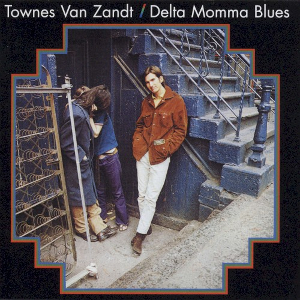
Delta Momma Blues is the fourth album by the country singer/songwriter Townes Van Zandt, released in 1970. Unlike his previous albums, which were influenced by Appalachian folk and country music and recorded in Nashville, this album was blues influenced and recorded in New York City.

At My Window is an album released by folk/country singer-songwriter Townes Van Zandt in 1987. This was Van Zandt's first studio album in the nine years that followed 1978's Flyin' Shoes, and his only studio album recorded in the 1980s.
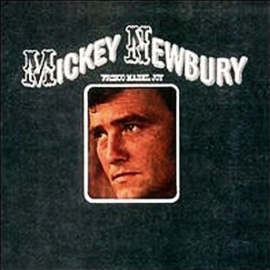
'Frisco Mabel Joy is a 1971 studio album by singer-songwriter Mickey Newbury. This was the second of three albums Newbury recorded at Cinderella Sound. The album includes the original version of "An American Trilogy", which Elvis Presley later performed in his Las Vegas shows with much success. "How Many Times " is a dramatically re-imagined version of a song first released on Harlequin Melodies, Newbury's RCA debut. Other standout tracks include "The Future's Not What It Used to Be", "Remember the Good", "Frisco Depot", and "How I Love Them Old Songs". The track "San Francisco Mabel Joy" was not initially part of the album, though it is included on some versions. ’Frisco Mabel Joy was collected for CD issue on the eight-disc Mickey Newbury Collection from Mountain Retreat, Newbury's own label in the mid-1990s, along with nine other Newbury albums from 1969 to 1981. In 2011, it was reissued again, both separately and as part of the four-disc Mickey Newbury box set An American Trilogy, alongside two other albums recorded at Cinderella Sound, Looks Like Rain and Heaven Help the Child. This release marks the first time that 'Frisco Mabel Joy has been released on CD in remastered form, after the original master tapes were rediscovered in 2010.

The Mysterious Rhinestone Cowboy is the third album of American singer David Allan Coe, and his first on Columbia Records. Released in 1974, it is his first release in the country music genre.
"Mister Can't You See" is a song written by Mickey Newbury and Townes Van Zandt that first appeared on Newbury's 1968 debut album Harlequin Melodies. Newbury's original version was slow and dominated by strings and a very simple drumbeat, with his voice telling a tale of nature's power and beauty. The actual title of the song comes from the line "can't you see the river flowing".

Good Times is the eighth studio album by American country music singer Willie Nelson, released in 1968. Arrangements were by Anita Kerr, Bill Walker and Ray Stevens.

Looks Like Rain is a 1969 concept album by singer-songwriter Mickey Newbury. After recording his debut album with RCA, Newbury was dissatisfied with the resulting album and left RCA to pursue a style closer to his tastes. Recorded at Cinderella Sound, as his next two albums would be, the result is widely considered his first real recording and represents a peak in the singer songwriter movement, especially for Nashville. The sound and style of the record would be highly influential during the Outlaw Movement during country music in the 1970s especially on albums by David Allan Coe and Waylon Jennings. Linking the tracks with delicate arrangements and liberal amount of atmosphere, the record contains some of Newbury's most celebrated compositions including "She Even Woke Me Up to Say Goodbye", "33rd of August", "I Don't Think Much About Her No More", and "San Francisco Mabel Joy". AllMusic's review of the album concludes, "Looks Like Rain is so fine, so mysterious in its pace, dimension, quark strangeness and charm, it defies any attempt at strict categorization or criticism; a rare work of genius."
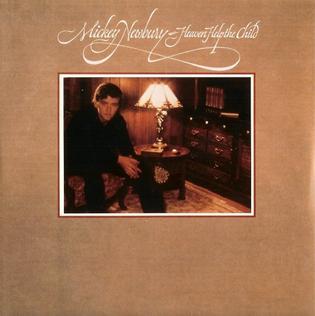
Heaven Help the Child is a 1973 studio album by country singer-songwriter Mickey Newbury. The album was Newbury's third consecutive release recorded at Cinderella Studios. Noted for its dramatic remakes of four previous Newbury songs: "Sweet Memories" and "Good Morning Dear" from Harlequin Melodies, "Sunshine" from Sings His Own, and "San Francisco Mabel Joy" from Looks Like Rain, the album is considered equal among Newbury's acclaimed Looks Like Rain and Frisco Mabel Joy. Apart from its definitive versions of three of Newbury's early songwriting hits, the album is also acclaimed for its title track, with its multi-generational narrative, the haunting "Cortelia Clark", and the bluegrass classic "Why You Been Gone So Long". In his AllMusic review of the LP, Thom Jurek declares, "Newbury, for the third time in as many recording sessions, came up with a record that defies categorization. And for the third time in a row, he had done the impossible, created a masterpiece, a work of perfection."

The Mickey Newbury Collection collects the ten albums Mickey Newbury released on three labels between 1969 and 1981 on an eight disc set. The set was released and is available through Mountain Retreat, a label run by Newbury and later Newbury's family. While Newbury had an impressive reputation as an artist and songwriter, at the time of the set's release in 1998, these recordings had been out of print for years. The original master tapes were lost by the labels, and so the recordings on the collection are digital transfers from virgin vinyl copies. The packaging replicates the original album art.

Rusty Tracks is a 1977 album by singer-songwriter Mickey Newbury, released by Hickory Records. The record is noted for Newbury's interpretations of four traditional songs, "Shenandoah", "That Lucky Old Sun", "Danny Boy", and "In The Pines".
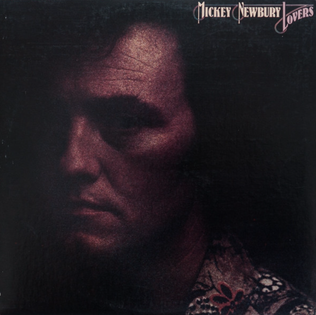
Lovers is the 1975 album by singer-songwriter Mickey Newbury. The album is noted for the inclusion of the epic trilogy "Apples Dipped In Candy" and the title track. It was his final release on Elektra Records. Chet Atkins played guitar on "Apples Dipped in Candy" and Bergen White arranged the strings on the album.
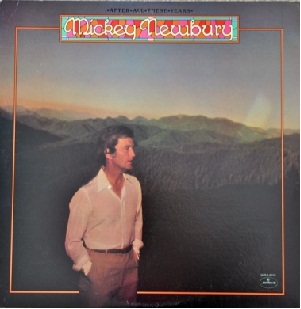
After All These Years is the 1981 album by singer-songwriter Mickey Newbury. Considered the concluding album of his remarkable 1970s run, it was the last album he would record for seven years. The album is very different in tone from its predecessor and revives Newbury's talent for song suites with "The Sailor/Song of Sorrow/Let's Say Goodbye One More Time". Other highlights on the album include "That Was The Way It Was Then" and "Over the Mountain".
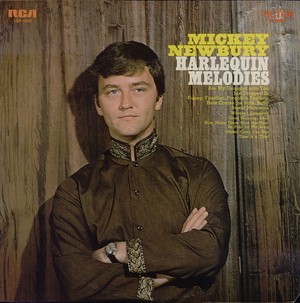
Harlequin Melodies is the 1968 debut album by singer-songwriter Mickey Newbury. Newbury was already a successful songwriter in Nashville, signed by Acuff-Rose Publishing. At one point he had four #1 hits on different charts for Eddy Arnold, Solomon Burke, The First Edition, and Andy Williams, and he had written hits for several others. Produced by Elvis Presley producer Felton Jarvis, Harlequin Melodies concentrates on Newbury's versions of his hit songs; nearly every song on the album has been covered by other artists.
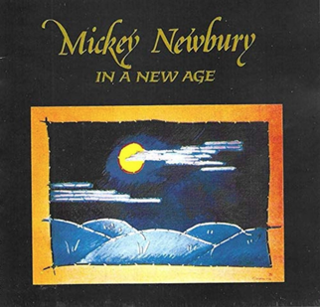
In a New Age is a 1988 album by the singer-songwriter Mickey Newbury. It contains new versions of eight classic Newbury songs, with a full version of "All My Trials" which is part of Newbury's "An American Trilogy"
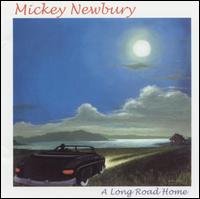
A Long Road Home is the 2002 concept album by singer-songwriter Mickey Newbury, released on his Mountain Retreat label. The album was recorded while Newbury was receiving full-time oxygen treatments for emphysema. The concept album is notable for its two ten-minute plus songs "In '59" and "A Long Road Home," new songs "Where Are You Darlin' Tonight" and "So Sad," and a new version of "Here Comes The Rain, Baby" one of Newbury's early songwriting successes that he first recorded for his debut Harlequin Melodies. This was the last studio album Newbury released in his lifetime.
"She Even Woke Me Up to Say Goodbye" is a song written by Doug Gilmore and Mickey Newbury, and recorded by American country music artist Jerry Lee Lewis. Released in September 1969, it was the first single from his album She Even Woke Me Up to Say Goodbye. The song peaked at number 2 on the Billboard Hot Country Singles chart. It also reached number 1 on the RPM Country Tracks chart in Canada.

The Loving Kind is the 19th album by singer-songwriter Nanci Griffith. It was released June 9, 2009 as her last album for Rounder Records, a label for whom Griffith worked since 2002. Comprising thirteen songs, it was her first release of all new material since 2005. The album tackles political topics such as Loving vs. Virginia and capital punishment, as well as songs about Griffith's heroes, such as Townes Van Zandt. BBC Music gave the album a generally positive review, stating that "It does sound like her muse is finally on the mend."

















